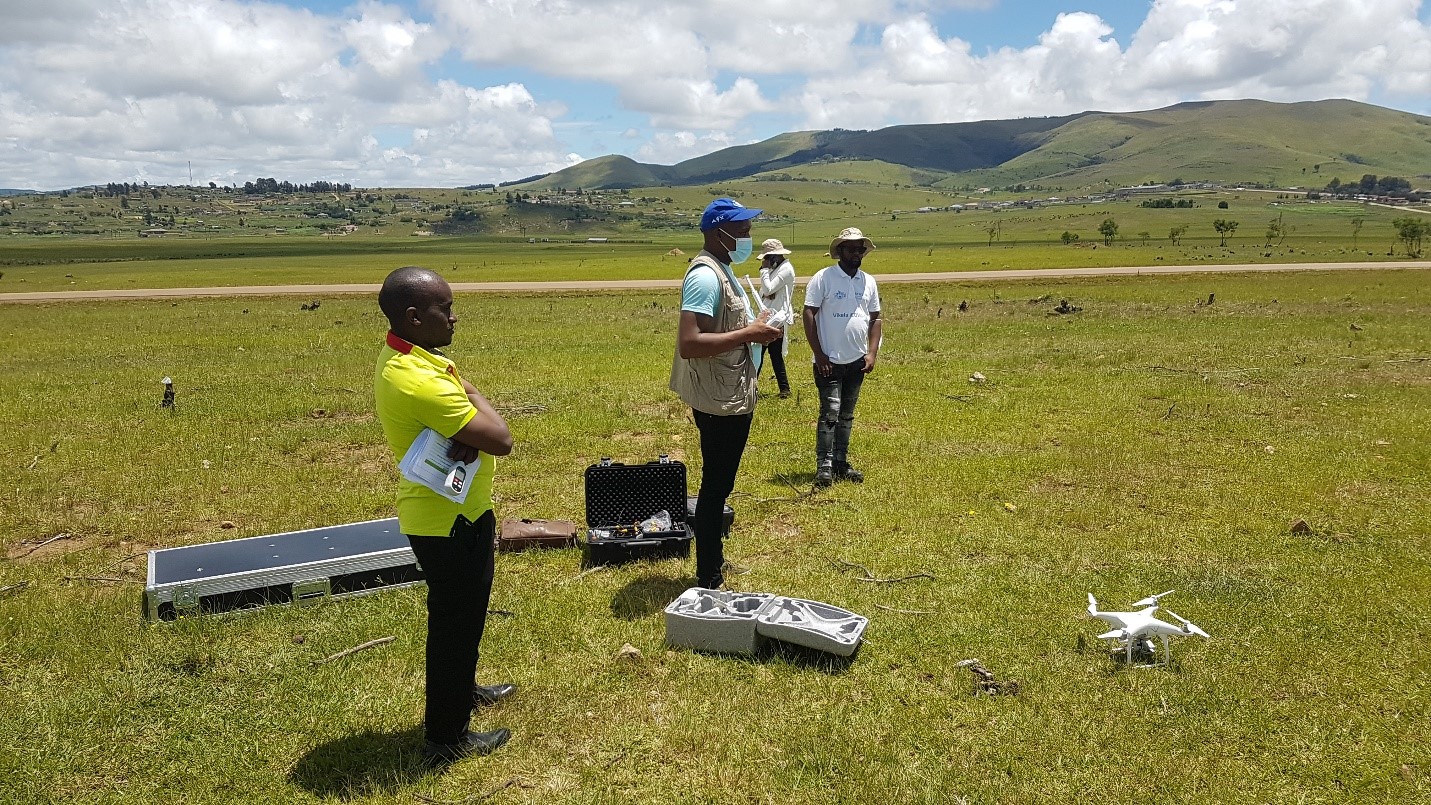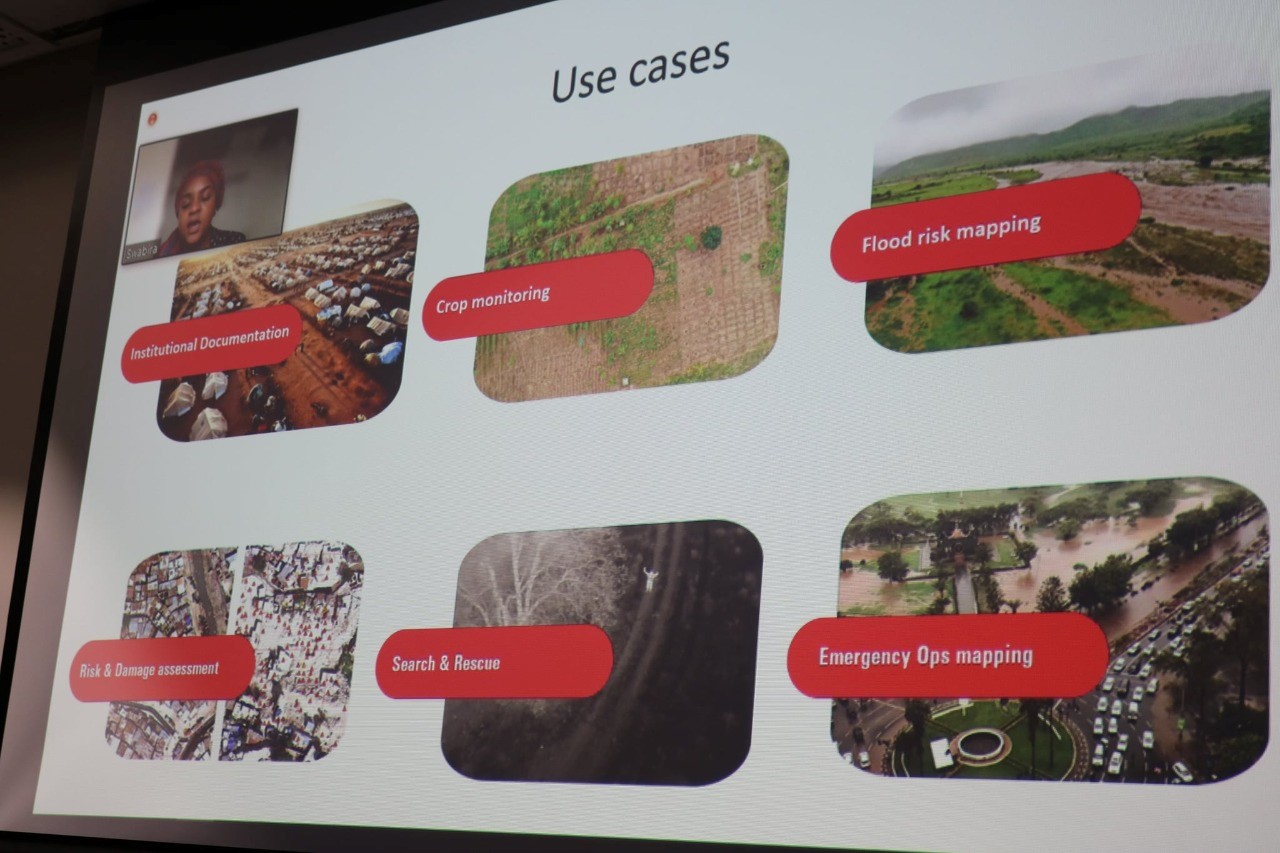With funding from the Climate Technology Centre Network (CTCN), the Regional Centre for Mapping of Resources for Development (RCMRD) collaborated with the National Disaster Management Agency (NDMA) from the Kingdom of Eswatini and the Kenya Red Cross Society (KRCS) in conducting crop monitoring assessments in four sites in the Kingdom of Eswatini using Unmanned Aerial Vehicles (UAVs) and Remote Sensing (RS) technologies.
The overall objective was to build the technical capacity of the NDMA alongside other Eswatini institutions such as University of Eswatini, Eswatini Meteorological Services, Departments of Forestry, Water Management (river basins), Disaster Risk Management and Ministry of Agriculture on the use of UAVs and Remote Sensing (RS) / Earth Observation (EO) for future crop monitoring assessments. Thereby strengthening the country’s capacity to identify, plan for and respond to climate-induced vulnerabilities and food insecurity situation in the country.

Mr. Sibusiso Gininza – A UAV pilot from NDMA demonstrating the use of Dji Phantom 4 Drone
The training was conducted jointly with RCMRD and the Kenya Red Cross Society. The six days training of 17 participants drawn from various institutions as listed above took place at the Hilton Garden Inn hotel in Mbabane. The training focused on four main sections including introduction to GIS and photogrammetry, UAV standard operation procedures, UAV pre-mission planning, UAV flight field demonstration using NDMA’s newly acquired wingtra generation 2 fixed-wing drone, imagery pre-processing using WebODM and feature extraction such as spectral indices and classification from pre-processed UAV and sentinel 2 imagery in R programming language.

The training was covered in one of the newpapers in Eswatini
To make the training interactive, daily kahoots were used in order to evaluate participants' understanding of the training modules. Pre and post training evaluations were also administered amongst participants with an aim of gauging their level of understanding on the training subject matter as well as obtaining their positive feedbacks after the training.
Due to unavoidable circumstances, the KRCS team were unable to physically attend the training. However, they were able to cover their three days training session virtually with the support of the UAV pilot from NDMA and RCMRD. This was the main challenge experienced during the training.
Miss Sawbira Abdulrizak from KRCS taking participants through drone use cases













